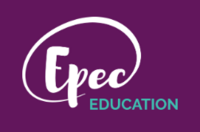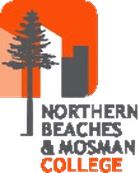
How do I become a Family Therapist in Central Coast?
Get qualified to work as a Family Therapist with a course recognised across Australia. Speak to a training provider to learn more.
Course providers in Central Coast
The following providers offer Family Therapist courses in Central Coast, New South Wales.
















Common questions
The average weekly salary for a Family Therapist in Australia is approximately $2,200 per week ($114,400 annually). Increase your earning capacity by obtaining post-graduate qualifications in Family Therapy and joining a professional association such as the Australian Association of Family Therapy (AAFT).PLEASE NOTE: These are median figures for full-time employees and should be considered a guide only.
 Courses.com.au Team
Courses.com.au Team
There are approximately 35,000 counsellors and psychotherapists working in Australia right now, some of these are Family Therapists. They may be employed by healthcare facilities, community service organisations, and government agencies, or work in private practice.
 Courses.com.au Team
Courses.com.au Team
To become a Family Therapist you need to be a registered counsellor (Bachelor of Counselling), social worker (Bachelor of Social Work), or psychologist (Bachelor of Psychology (Child and Family)) and have specialist training in Family Therapy. Suitable post-graduate qualifications include: Graduate Certificate in Family Therapy, Graduate Diploma of Family and Relationship Therapy, Master of Family and Systemic Therapy, and Master of Clinical Family Therapy. For more detailed information about the career pathway of Family Therapists, contact the Australian Association of Family Therapy (AAFT) which is the peak industry body for this occupation in Australia.
Source: Australian Government Labour Market Insights 2023
 Courses.com.au Team
Courses.com.au Team
Related career opportunities
Browse occupations related to Family Therapist
Further reading


What does an Occupational Therapist do?
15th September 2022
How to become a qualified Occupational Therapist or Physiotherapist in Australia
23rd December 2024Family Therapist careers
Embarking on a career as a Family Therapist can be a rewarding path, particularly in the beautiful Central Coast region of Australia. Those interested in pursuing this career can explore a variety of Family Therapist courses in Central Coast, equipping them with the essential skills and knowledge needed to support families in challenging situations. Whether you are starting out or seeking to deepen your expertise, there are options available to suit your needs.
For beginners, a notable course available is the Identify and Report Children and Young People at Risk CHCPRT025. This course lays the groundwork for understanding the nuances of family dynamics and child protection, ensuring learners are well-prepared to make a positive impact. For those with prior experience, advanced programmes such as the Bachelor of Psychological Science (Honours) or the Graduate Diploma of Relationship Counselling CHC81015 offer a deeper dive into therapeutic techniques and counselling methodologies. Other options include the Master of Child and Adolescent Mental Health and the Bachelor of Counselling.
Completing these Family Therapist courses in Central Coast not only prepares you for direct client work but can also lead to a variety of fulfilling job roles. Graduates may find opportunities as a Counsellor, Mental Health Worker, or even as a Child Psychologist. The Central Coast area boasts a strong demand for qualified mental health professionals, making this an ideal time to join the field.
Furthermore, the skills acquired through Family Therapist courses can be applicable in various roles, such as Behaviour Support Specialist or Psychologist. The Central Coast community values mental health services, and trained professionals are essential in fostering well-being among families. By enrolling in these courses, you are taking a significant step towards supporting individuals and families, reinforcing your commitment to making a difference in the lives of those in your community.
